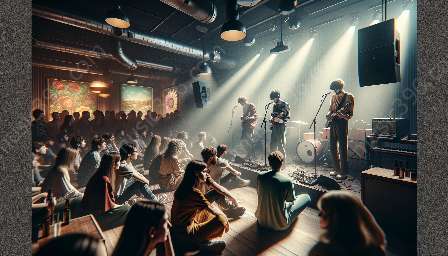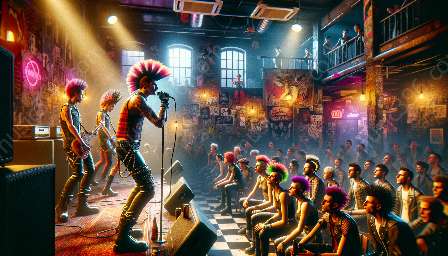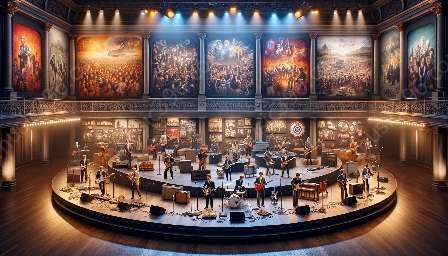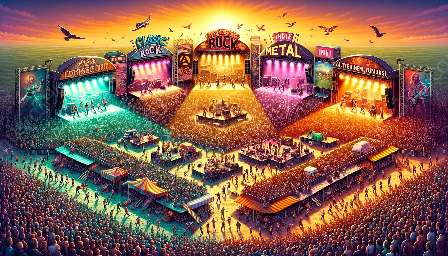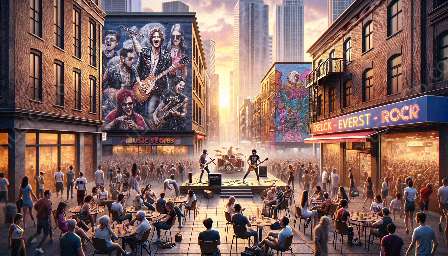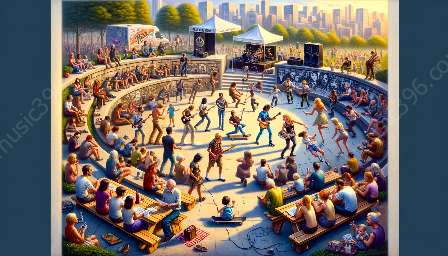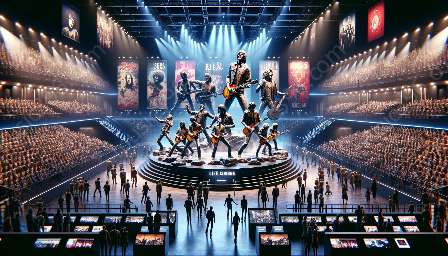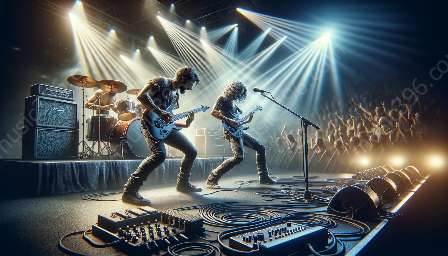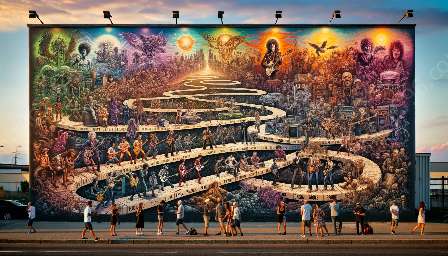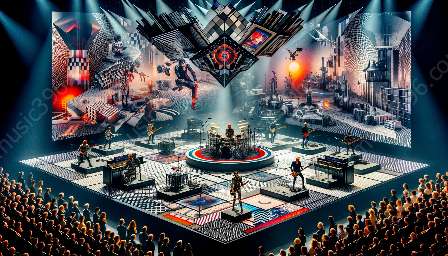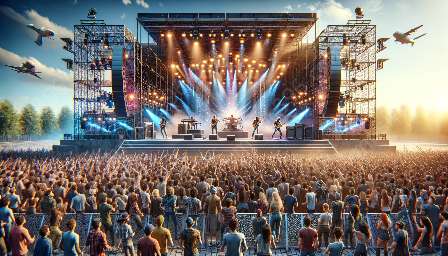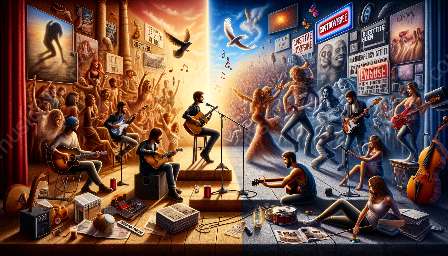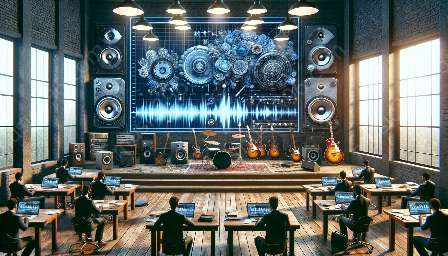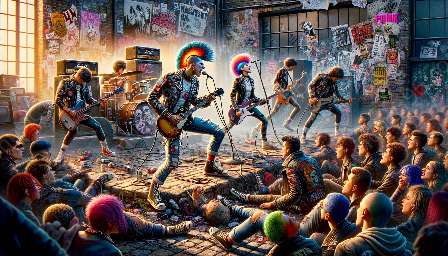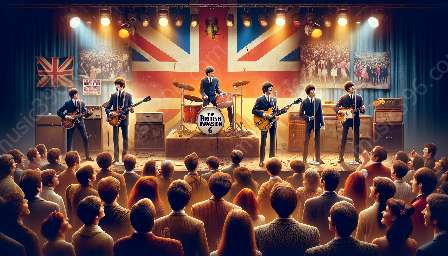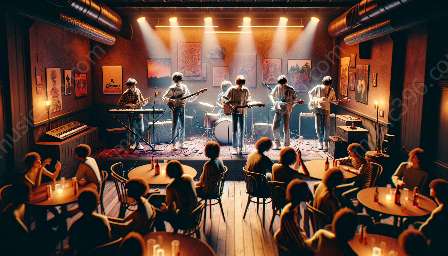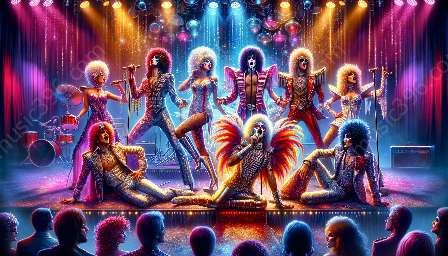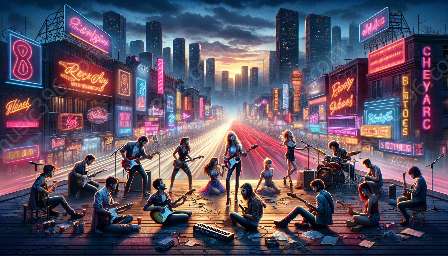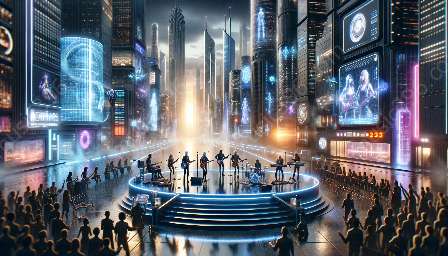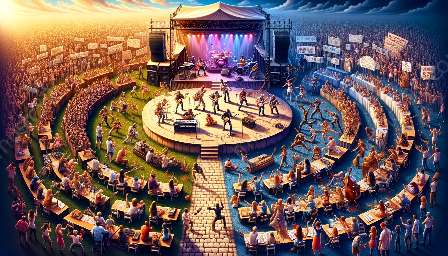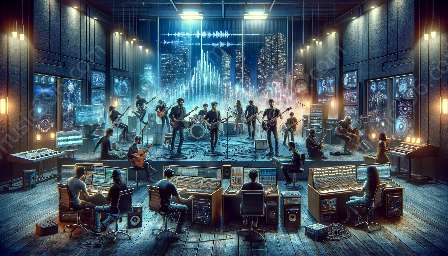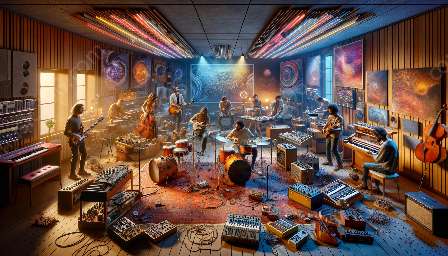Rock music festivals have been an integral part of the music industry for decades, attracting thousands of music enthusiasts to celebrate the power of live music. With the advancement of technology, the way rock music festivals are experienced and organized has undergone a significant transformation. From stage production to audience engagement, technology has reshaped the landscape of these events, creating an immersive and unforgettable experience for both artists and fans alike.
Evolution of Sound Systems
One of the most vital aspects of rock music festivals is the quality of sound. Over the years, technology has played a crucial role in enhancing the sound systems used during these events. From the early days of rock festivals, where simple amplifiers and mics were the norm, to the present day, where advanced sound engineering and state-of-the-art sound systems are employed, technology has significantly impacted the way music is heard and appreciated at these events. The use of digital sound processing, advanced speaker systems, and sound engineering software has not only improved the overall audio experience but has also allowed for better control and consistency in sound quality across different stages and venues.
Stage Production and Visual Effects
Technology has revolutionized the visual aspect of rock music festivals, transforming stage production and visual effects into an awe-inspiring spectacle. With the introduction of high-definition LED screens, laser light shows, and advanced stage design techniques, the visual impact of these festivals has reached new heights. Artists are now able to deliver larger-than-life performances, creating a mesmerizing experience for the audience. Furthermore, the integration of augmented reality (AR) and virtual reality (VR) technologies has allowed for immersive and interactive visual experiences, blurring the lines between the real world and the digital realm, and adding a new dimension to the live music experience.
Live Streaming and Global Reach
One of the most significant impacts of technology on rock music festivals is the ability to reach a global audience through live streaming. With the rise of streaming platforms and high-speed internet connectivity, fans from across the world can now tune in to live performances, regardless of their geographical location. This has not only expanded the reach of rock music festivals but has also allowed for greater accessibility and inclusivity, enabling fans who may not have been able to attend the physical event to experience the thrill of live performances in real-time. Additionally, live streaming has opened up new revenue streams for festivals, as they can offer virtual ticketing options and exclusive digital content, further enhancing the overall festival experience for both in-person and virtual attendees.
Enhanced Fan Engagement and Interaction
Technology has transformed the way fans engage with rock music festivals, providing interactive and immersive experiences that go beyond just music. Mobile apps and augmented reality features allow festival-goers to access event schedules, maps, and exclusive content, enhancing their overall festival experience. Moreover, social media platforms have become instrumental in building anticipation and excitement around rock music festivals, allowing fans to share their experiences, connect with artists, and participate in interactive campaigns leading up to the event. This level of connectivity has not only created a sense of community among festival-goers but has also allowed for real-time updates and instant sharing of memorable moments, further amplifying the impact of these events.
Technological Innovations in Performance
Advancements in technology have also influenced the way artists and bands deliver their performances at rock music festivals. From the use of digital instruments and effects pedals to the integration of live looping and sample triggering, artists now have a vast array of tools at their disposal to create dynamic and captivating performances. Furthermore, the use of playback systems and synchronized lighting control has allowed for seamless and synchronized live performances, enhancing the overall impact of the musical experience. This fusion of music and technology has led to groundbreaking and experimental performances, pushing the boundaries of traditional live music experiences and captivating audiences in new and innovative ways.
Conclusion
Technology has undeniably transformed rock music festivals, reshaping the way music is heard, seen, and experienced. From the evolution of sound systems to the global reach of live streaming, and the integration of innovative visual effects and performance technologies, the impact of technology on rock music festivals is profound. As technology continues to advance, the future of rock music festivals holds endless possibilities, promising even greater immersive experiences and pushing the boundaries of live music entertainment.
- Rock Music Festivals
- Rock Music




